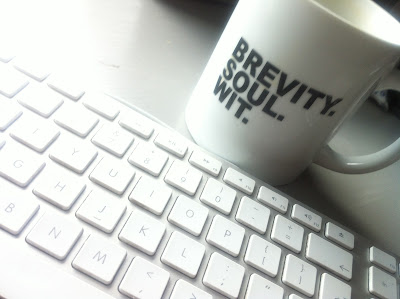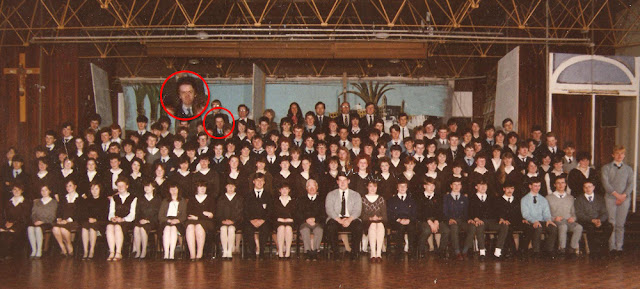I didn’t want to mislead you there with a Betteridge/Marr style headline so let me first emphasise that, no, I don’t know why star actors tell journalists that they rewrite scripts when everyone in the production knows they do not.
Let me say second that Betteridge/Marr is a new term coined about forty words ago. This has been called Betteridge’s Law: if a headline is a question, the answer is no. Apparently Ian Betteridge said that in 2009 but now others are pointing out that Andrew Marr said it five years earlier. So. Betteridge/Marr. You read it here first.
But now, third, I do have an idea about actors and why they do this.
It’s not very common; this topic is only in the news this week because of an interview the New Tricks cast gave to Radio Times saying this – and then writers said hang on a mo about it.
And actually I remember the last time RT covered the start of a New Tricks series and the cast said the same then. I’m not sure why it’s got more coverage now: maybe we just all thought they were kidding at first.
Slightly less high profile was an unrelated Yorkshire Post article this week which was about actor Conrad Nelson in which he said:
“The most important thing I do as an actor is attempt to get out of the way. My job is to not impede the path between the words the author has written and the audience. All I’m trying to do is release the play. I go down the road and the only thing I really control is the number on the speed signs.”
Remember when Lenny Henry played Othello and got deservedly high praise? Nelson played Iago in that run. Now, I’ll admit this: usually Iago is played as a bit of a moustache-twirling villain but Conrad Nelson frightened me. I know the man a little, I know him enough to meet for a natter after the performance, but this is how good his Iago was: when I saw him ten minutes later, I found it harder to shake his performance than he did. I was still a little scared while he was right back to his typical charming, funny self.
So don’t ever imagine I am not impressed with actors. There are good and bad as there are in anything, I just don’t understand how they do it.
And that, I think, is at the heart of all this.
It’s very hard to explain what an actor does. You can point at the end result, but the end result is an immense collaboration: drama is collaboration, that’s one of the reasons I love writing it, that I love – truly love – the discussions and the debates and the sense of everyone wanting the best result and everyone having something to contribute. I also rather love the tight feeling in my chest as I try to step up and contribute as much. I’m a better writer through this process and it’s an improvement I take with me back to books and prose.
One of the contributors is the actor. It’s traditionally a hard thing for a writer to accept, but by the end of the process, a good actor will know their character better than you do. I don’t see how that can happen when the speed of production means getting the script as you step in front of the cameras, but it is what is meant to happen and it is an important part of making drama work.
You get this idea but can you or I really describe it? (No. Is no the answer to every question? Yes.) In the end, I think all description of what an actor does boils down to, mathematically reduces down to is that they read the script and they say the words. That does not convey a scintilla of the task, but it completely describes the job.
It doesn’t make for a very exciting interview. New Tricks has been running for nine series: would anyone really say, and would anyone really read, that they still read the script and still say the words?
Series are special. I love TV drama series: the one-hour TV drama is to me as the three-minute pop song is to so many. The form is just terrific and the things you can do: one idea of bliss for me is being scooped up by watching a TV drama that so takes me away that I forget everything else going on in my life and then it plots me down somewhere new at the very end of the hour. To have gone somewhere with the story, with the characters. It’s all I care about: whether I am engrossed in the story.
Yet series are special because they are different. Actors can spend years upon years playing the same role in a series and there, if they truly have no input into the stories at all, you’re wasting their talent and they’re wasting their time. Plenty of actors write, plenty of actors direct, but even if your star solely acts, they have spent such a long time in deep with their character that they are a resource. You do get actors who say “My character wouldn’t say this” and you do get times when what they really mean is “I don’t want to” but I think more often you get actors who are like every single other person in the production and they want the best for the show.
There’s a rather detailed blog about Leverage by creator/writer John Rogers which routinely talks of how involved the cast are with that fun series. What interests me is that it’s also routine to see questions on that blog from fans who want to know if this or that actor ad libbed a particular line. (Usually no. Sometimes yes.)
Why do people want to think the actors made it up? It used to be that viewers quite commonly believed characters and shows were real: you can mock the idea that people would genuinely apply for jobs at the Crossroads Motel but many did. We are ever more sophisticated and television-literate now: is this desire for the actors to have written what they say just an evolution of that?
I think I’d like the answer to be no. But I think it might be a maybe.
I also think that alongside our increasing literacy in television – our collective knowledge of the form such that you can spot a soap plot three weeks out, how you instinctively know when a scene is ending, how you know when the adbreak is coming – there is an increasing feeding of our interest.
Radio Times interviews actors all the time. It doesn’t often interview writers or directors. Nowhere does. It’s always actors and they are the obvious ones to go for because they are in our faces on screen and they do also tend to be marginally more attractive than even rogueishly handsome writers like me. (Let me have that one.)
So actors are feted and because they are feted, to consciously or unconsciously justify giving them all the attention, actors are specifically feted as being the most important part of any production. Which means everyone else is not the most important. You may well expect me and everyone other non-actor in drama to complain about that being unfair. I think it’s boring. But I also think it’s ultimately very damaging to actors. It diminishes their genuine accomplishment. Because if it’s hard to describe what they do, it doesn’t matter: nobody asks them now anyway.
I sat in a round-robin interview on the set of Holby City, way back when that started, and each actor had their turn sitting in one chair faced by a semi-circle of maybe 15 journalists. Each one of us got our turn in sequence and I was something like number 7, so I watched six of my peers – and actually six far more experienced journalists than I was – asking their questions.
It was excruciating.
George Irving was up first and he was playing a curmudgeonly heart surgeon named Anton Meyer. The six people ahead of me all asked exactly the same question with the most minuscule differences:
“Did you ever want to be a heart surgeon yourself?”
“Did you, yourself, ever want to be a heart surgeon?”
“Did yourself, you, a heart surgeon ever want to be?”
You will not be surprised to know that the answer was no. What were the odds? Irving was a pro: I can’t remember how he answered but he found six different ways to say no, yet he has always had great admiration for heart surgeons and now that he’d watched operations in preparation for his role, he admired them even more. Things like that. Six things like that.
Then it was my turn.
“Anton Meyer is a clear curmudgeon, an authority figure who uses disdain and arrogance to get what he wants. Do you think there’s a risk that, as fresh as that seems now, it could become a one-note type of character that’s hard to develop over the series?”
I’m afraid I can’t remember his answer. I know it began with “No”. But what I remember very vividly, like it’s video in my head, is how he changed. He sat up straight, his eyes did that slight flicker you see when someone is trying to think, and he actually thought. Every answer to that point had been as easy as batting back a ball, but here he thought. And gave me a considered, smart, really interesting answer.
And then it was number 8’s turn.
“Do you want to become a heart surgeon?”
Irving settled back into that relaxed, easy pose and batted back a line about no, but he had always admired heart surgeons immensely and now he’d watched some in preparation for his new role as Anton Meyer in Holby City, starts 12 January on BBC1, he admired them even more.
A few minutes later I got an extra interview with another member of the cast who was playing a nurse. She went through the same semi-circle of dread but with a twist:
“Did you ever want to be a nurse yourself?”
“Tell us about the breakup with your boyfriend. Did you cry?”
After that, she and I got whisked off to a side room for a follow up. Can’t remember why. But as we walked there, I confessed I wasn’t going to ask about her boyfriend. That I really didn’t care about her boyfriend. It was like a little tap being released: “I know!” she said. “Who the fuck cares whether I’ve got a boyfriend or not?”
Apparently everybody.
And it’s a problem. You can really only talk about the mechanics of drama: the shoot gets immense coverage even though it’s the last and arguably easiest part, because it’s visual. Nobody’s going to photograph me pulling my hair out at the keyboard. Nobody’s going to film a producer managing to sell the script. Nobody’s going to interview a TV commissioner about how they do their job. But if you act, you’re interviewed.
Even if there weren’t a inbuilt prurient interest in actors as celebrities, eventually we’d get there anyway because there is a physical, statistical limit to how often you can rearrange the words in a sentence about being a heart surgeon. There are even fewer ways to say “No” in new and different ways.
So actors get asked about how they get on with their co-stars. Shock: everybody was lovely! Okay, so, tell me about the production. It filmed in this place or that. Great. Got anything else?
“If we felt that a story didn’t work, or that bits of the story could be improved, then – if the writer wasn’t around – we would set about rewriting it ourselves” – Alun Armstrong
“You have to remind yourself that people aren’t as stupid as writers think” – Dennis Waterman
I’m not defending this. If you haven’t read the rebuttals and don’t know, or can’t guess, this sums up the reaction the cast have got from their comments:
“A New Tricks I wrote and directed airs on Monday. I can tell you EXACTLY how much of it the actors wrote: not a fucking comma.The following week, Sarah Pinborough’s episode is on. I directed that too. Cast contribution to script? Big fat zero” – Julian Simpson
Of course you know he means they didn’t contribute to the writing, that there is nothing in the script that they changed or added or proposed. But they did perform the script and that is a gigantic contribution. The genuine, real-life and at times immensely admirable contribution actors bring to a drama is ignored or at most trivialised.
The New Tricks cast brought this specific incident on themselves. I am agog that they would say this and specifically describe their own series as “bland” when they were promoting the series.
But are there reasons they and other actors have come to claim that they contribute beyond their acting?
Yes.
Is there a good excuse for them claiming to be writers?









